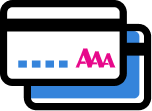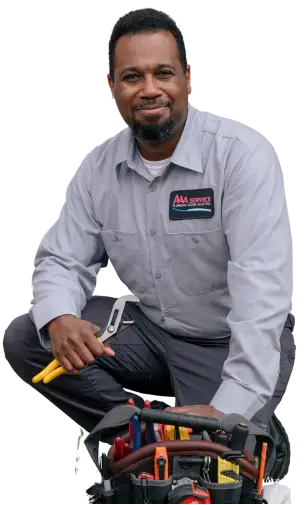4.8 Google Rating
Denver Air Conditioning Maintenance
Keep Your Denver Home Cool All Summer Long
Get your air conditioner or heat pump in top condition with an AC system tune-up from our team at AAA Service Plumbing, Heating & Electric. We proudly service systems of all types, including central air conditioning, heat pumps, geothermal, and ductless mini-splits.
Schedule your AC tune-up today with our Denver air conditioning specialists – call 303-313-3333 .
Benefits of Getting an AC Tune-Up
When summer is right around the corner, if you haven’t yet had your air conditioning system serviced, now is the time! There are many benefits of having your system serviced before you use it most.
- Ensure safety: Should you find yourself in a situation where summer temperatures are soaring and your system is failing, not only can it be uncomfortable, but it can be dangerous as well. Scheduling a tune-up can ensure that any broken or inefficient pieces are replaced and your system will work properly when you need it most.
- Prevent costly repairs: If you call AAA to come over and check out your system once or twice a year, it’s likely if your system is in need of repairs, we will be able to make them before your system is totally run down and needs to be replaced. Regular maintenance also prolongs the lifespan of your system and it’s equipment.
- Make sure your AC can properly cool down: If you turn your system on for the season and find it’s not cooling down your house as it once did, this isn’t normal. During a tune-up, well test to make sure your air is as cool as can be so your family is comfortable and cool on the hottest of summer days.
- Reduce energy bill: Save money on utility costs by maximizing system efficiency. In the long run, you will save more money on your energy bill each month.
- Prolonging the lifespan of your equipment: By scheduling regular AC maintenance, your unit will perform much better for longer. It’s just like with a car – if you take it in for regular inspections and tune-ups it will typically last longer.
Elevate your indoor comfort with AAA Service Plumbing, Heating & Electric’s top-notch AC tune-up services. Our skilled technicians specialize in comprehensive HVAC service in Denver, offering precision AC maintenance to keep your system running at peak efficiency. With our AC tune-up, we address potential issues, optimize performance, and enhance energy efficiency.
Is your system in need of a tune-up? Turn to the cooling experts here at AAA Service! We are the guys in the bright pink trucks that you see all over town! Call 303-313-3333 to schedule your appointment or to learn more about Club Membership!
Get In Touch With Us
303-313-3333
Fast, Effective Service You Can Trust
Broken air conditioning can make life uncomfortable and even dangerous when the temperature gets extreme. We’ll see to it that your AC is ready for the demanding heat of summer. Then, if for some reason your AC unit breaks down, call us for quick air conditioning repair or replacement.
You’ll have peace of mind knowing that our air conditioning tune-up technicians will take great care of your home. We will wear shoe covers, put down drop cloths and splash guards so you never need to worry. Your home will be cleaner than when we arrived. No one will do a better job, even if they charge 3 to 4 times as much.
Services 100% Guaranteed
We hire the best technicians and give them the best training and tools available to serve you and repair your air conditioning problems. We back all this with a written guarantee.
If you’re not satisfied, we will come back and fix the job for FREE.
With same-day services and nights and weekend availability at no extra charge, you know that AAA Service Plumbing, Heating & Electric is always ready to help.
Choose our Denver AC maintenance specialists! Call 303-313-3333 or fill out our online contact form today.
You Deserve The Best
See What Sets Us Apart From The Rest



